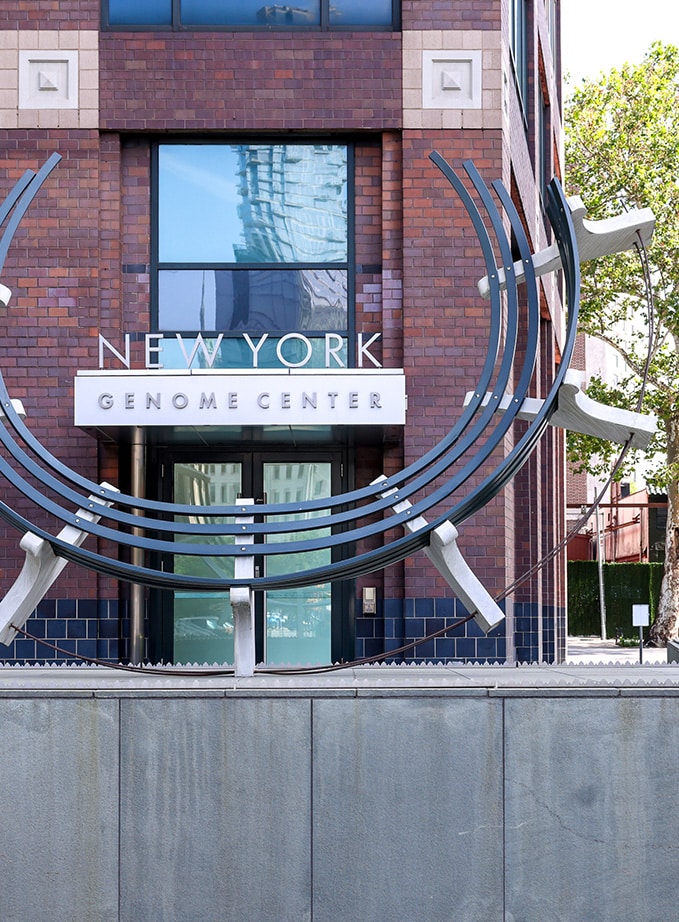Polyethnic-1000 Vision
In a collaborative effort organized by the New York Genome Center (NYGC), leaders of the New York City cancer research community have joined together to advance cancer genomics and its practice in clinical care by leveraging the City’s famously large and diverse population. The vision of this project, called Polyethnic-1000, is to deepen our understanding of the influence of different genetic backgrounds on the incidence and behavior of cancers, thereby improving outcomes for many patients, especially those who currently lack access to the most recent advances in medical science. This will be achieved by bringing genomic innovation to patient populations generally under-represented in research and hence deprived of the benefits of scientific progress.
Background
Recent advances in DNA sequencing technologies have revolutionized approaches to the prevention, risk assessment, early detection, diagnosis, and treatment of cancers. However, many patients, especially non-European minorities, are significantly under-represented in cancer research, including clinical trials, and have not received equal benefits in clinical practice. Our current knowledge about tumor biology, cancer risk, and response to treatment has primarily been derived from patients of European descent. These inequities limit our understanding of cancer in general and may exacerbate health disparities in the United States and in the world. Polyethnic-1000 addresses both the scientific and social issues by creating a dynamic research platform within the greater New York area that promises to enhance the ways in which cancer is prevented, diagnosed, and treated. It will establish a framework to enhance interactions among our region’s academic and health centers to advance cancer genomics. These efforts should improve and widen the use of genomics for all, especially currently underserved minority populations.

Collaborative Cancer Genomics Research Projects Focused on Underserved Populations Launched
P-1000 has awarded grants to support seven new research projects that will study a wide array of cancers in minority patients: bladder, pancreatic, breast, prostate, colon, endometrial and lung cancers.
These projects follow the first phase of P-1000, in which a multi-institutional network of collaborators was developed throughout New York City, including scientists, pathologists, local Institutional Review Boards and administrators; a scientific leadership steering committee and review board were established; a centralized, secure system for data management, sharing, analysis and quality controls was created; and a data sharing platform, including visualization tools, was developed.
In the next phase of P-1000, a request for proposals was distributed to the members of the P-1000 community with the aim of identifying projects that would provide the greatest benefit to under-represented ethnic populations. An external review board composed of six esteemed scientists and physicians, all experts in cancer biology and cancer health disparities, reviewed the proposals and selected the projects. Chaired by Dr. Deborah Schrag (Dana-Farber Cancer Institute), the board also included Dr. Otis Brawley (Johns Hopkins), Dr. Funmi Olopade (University of Chicago), Dr. Susan Domchek (University of Pennsylvania), Dr. Stephen Chanock (NCI), and Dr. David Beer (University of Michigan). The awardees were selected based on relevance, innovation, experimental design, achievability, and most effective use of the P-1000 network.
These new research grants have been made possible by generous gifts from NYGC Board member Weslie Janeway, the Mortimer B. Zuckerman Family Foundation, The New York Community Trust, Donna and Ben Rosen, and with support from Illumina Inc. Funding of the first phase of the project was provided by The Mark Foundation for Cancer Research.
Award-Winning Cancer Research Projects Include:
Over the course of the next two years, these funded researchers will work with academic health centers and community hospitals throughout the New York City region to recruit patients, perform whole-genome and RNA sequencing with cancers and normal tissues to identify differences between ethnicities that may account for disparities in occurrence, response to treatment, and survival for the cancer types under study.
Findings from the projects will be shared with the research community. Data will be stored in a repository maintained by the NYGC that will serve as a global resource for efforts to understand the roles of ethnic diversity in cancer.
A Weill Cornell Medicine study to determine how ethnic diversity affects the clinical outcomes of bladder cancer. The multi-disciplinary team will be led by Drs. Bishoy Faltas and Olivier Elemento, Weill Cornell Medicine.
Latest News & Publications
-
American Society of Human Genetics · March 26, 2025
-
Nature Methods · March 24, 2025
Single-cell parallel analysis of DNA damage and transcriptome reveals selective genome vulnerability.
-
bioRxiv · March 20, 2025 · Preprint
Ontogeny Dictates Oncogenic Potential, Lineage Hierarchy, and Therapy Response in Pediatric Leukemia.
About the NYGC Cancer Center Group
The Genome Center Cancer Group (GCCG) is composed of clinicians and cancer researchers representing most of the NYGC member institutions, including all of New York City’s NCI-Designated Cancer Centers and other renowned academic and medical institutions and industries. It meets monthly and is chaired by Drs. Harold Varmus and Charles Sawyers. Polyethnic-1000 will build on the extensive expertise available at the NYGC, with its well-established sequencing and analysis pipelines, to expand these services to the wider NY community. Hospitals serving large populations of ethnic minority patients have been and will be approached to join Polyethnic-1000; these institutions include hospitals affiliated with NYGC’s Institutional Founding Members (IFMs) and unaffiliated hospitals, as well as major academic health centers.
Contact Us

